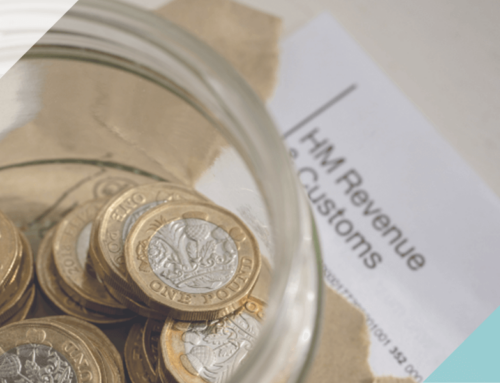The subject of drug testing in the workplace is a controversial one for businesses.
Many arguments exist supporting both sides of the debate. Some business owners feel they have every right to randomly test employees for illicit drug use. Others think it is an unnecessary violation of privacy. Here Lloyd Clarke takes a look at the legalities.
According to recent figures, workplace drug testing has increased significantly in the UK.
In fact, leading screening companies found that there had been a rise in the number of annual tests carried out of up to 470% between 2010 and 2014.
Those in favour of the practice claim it lowers business insurance premiums, reduces health and safety risk in the workplace, and helps identify employees who need extra support.
Critics believe testing may foster resentment among employees who feel violated, which can then negatively affect productivity and cost the business money in lost revenue.
Can my boss make me take a drugs test?
Your boss cannot force you to undergo testing. You have to consent to it first.
But you may have already done this and not realised.
The first thing to do if you are asked to take a test is to get out your employment contract and check if there’s a clause about drug testing.
In some industries drugs tests are mandatory. In others, they choose to include a clause in the contract – or company handbook – that allows them to spot-test employees for drugs.
If you have signed it, you have got to comply.
Refusing to could be seen as a breach of contract and you could be fired for gross misconduct.
If it isn’t in your contract, however, refusing may still may cause you to lose your job.
It could be seen as refusing to comply with a reasonable request from your employer, which could breach an important implied term of your contract.
Having said this, drug testing comes under data protection laws that cover any sort of monitoring including checking employees’ emails or mail, bag searches, and CCTV.
If a worker can argue that a request for testing is not reasonable, he or she might be able to resign and claim constructive dismissal.
Grounds for suspicion
While you are within your rights to refuse a drugs test, by doing so you may make your employer suspicious of your reasons for saying no.
Earlier this month an employment tribunal rejected an unfair dismissal claim by a line manager who was sacked when he refused to take a workplace drug test.
Andrew Dyson, a warehouse operations manager for Asda, argued that there were not sufficient grounds for testing him in the first place.
However, his employer said that after he refused a voluntary test (following a case of mistaken identity no less), they felt he was trying to hide something.
They sacked him after he continued to refuse a compulsory test request, arguing that he was held responsible for enforcing the employer’s drug and alcohol testing policy and should have set an example.
The tribunal agreed and Dyson lost his case.
What happens if you fail?
You decide not to refuse but when you take the test, you fail.
What now?
Depending on your company’s policy, failing a drug test could lead to disciplinary action or you being dismissed.
If your company has a zero-tolerance policy to drugs, just the positive result could be seen as gross misconduct and you could be sacked immediately or suspended while there is an investigation.
Some companies have a condition in the contract that employees should not be under the influence of drugs at work.
In this case, a positive drug test on its own will not be enough evidence that you were under the influence.
Sometimes the accuracy of tests can be argued too.
When tests go wrong
Last year an employment tribunal awarded a bus driver £84,000 for unfair dismissal after a drug test revealed traces of cocaine that he argued must have come from contamination on his hands from passengers’ banknotes.
The claimant, Mr. Bailes, was dismissed after a saliva drug test picked up traces of cocaine.
But he insisted that he had never taken cocaine and that the traces of cocaine picked up by the drug test must have come from his handling of passengers’ banknotes on the day of the test.
To demonstrate his innocence, Mr. Bailes paid for an independent hair-follicle drug test that showed that he had not taken cocaine in the previous 90 days.
The employment tribunal was particularly critical of his former employer’s failure to investigate his explanation for his failed drug test.
The tribunal said that the employer had been “wholly uninterested in exploring that sensitive but important issue”.
Ignorance is no excuse
In some cases, there is no fighting the result and you should accept the consequences – even if you didn’t know that what you were doing was wrong.
The high-profile case concerning Maria Sharapova demonstrates this.
The tennis player was provisionally banned from her sport after she revealed she tested positive at the Australian Open for a recently banned drug.
The drug is called meldonium, though Sharapova said she had been using it under the name of mildronate and was unaware of the different name and the fact it is on the World Anti-Doping Agency’s banned list.
She claimed she was prescribed meldonium by her doctor in 2006 to deal with health issues such as an irregular heartbeat and a history of diabetes in her family.
But even though she claimed she was ignorant of its “performance-enhancing” qualities, she had to accept she had breached the rules.
Challenging your employer
Whether you fail a test or refuse one, you may face the wrath of your employer as a result.
If you are concerned that you have been treated unfairly, you must first challenge the decision through your employer’s internal procedures.
If you are still not happy, you may want to issue proceedings in the Employment Tribunal.
You should immediately seek specialist advice from an employment solicitor if you have failed a drug test. Call Lloyd Clarke on 01206 239761.





